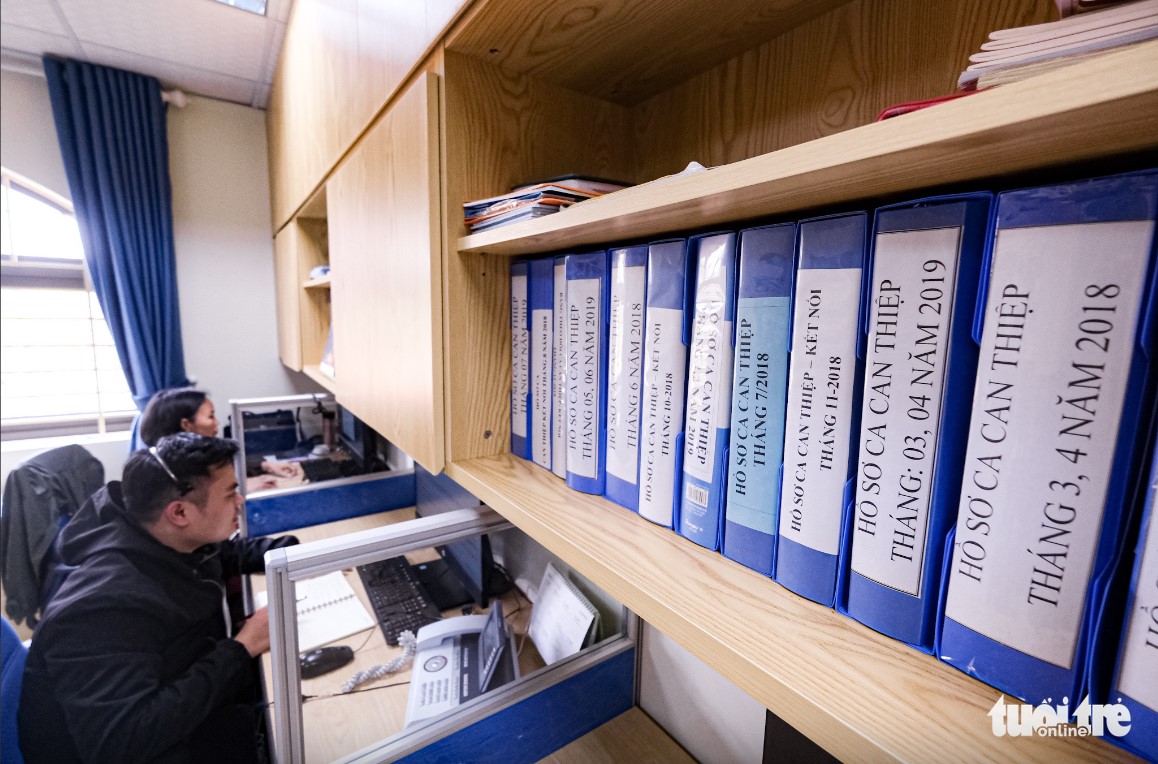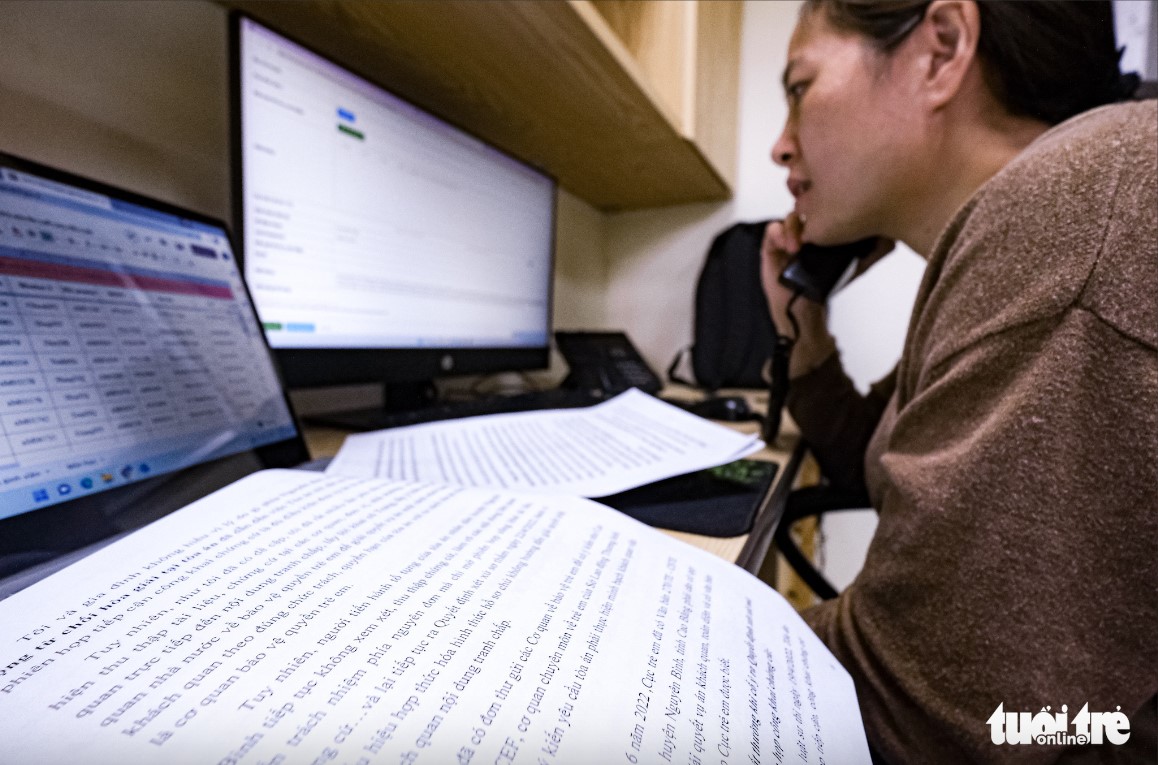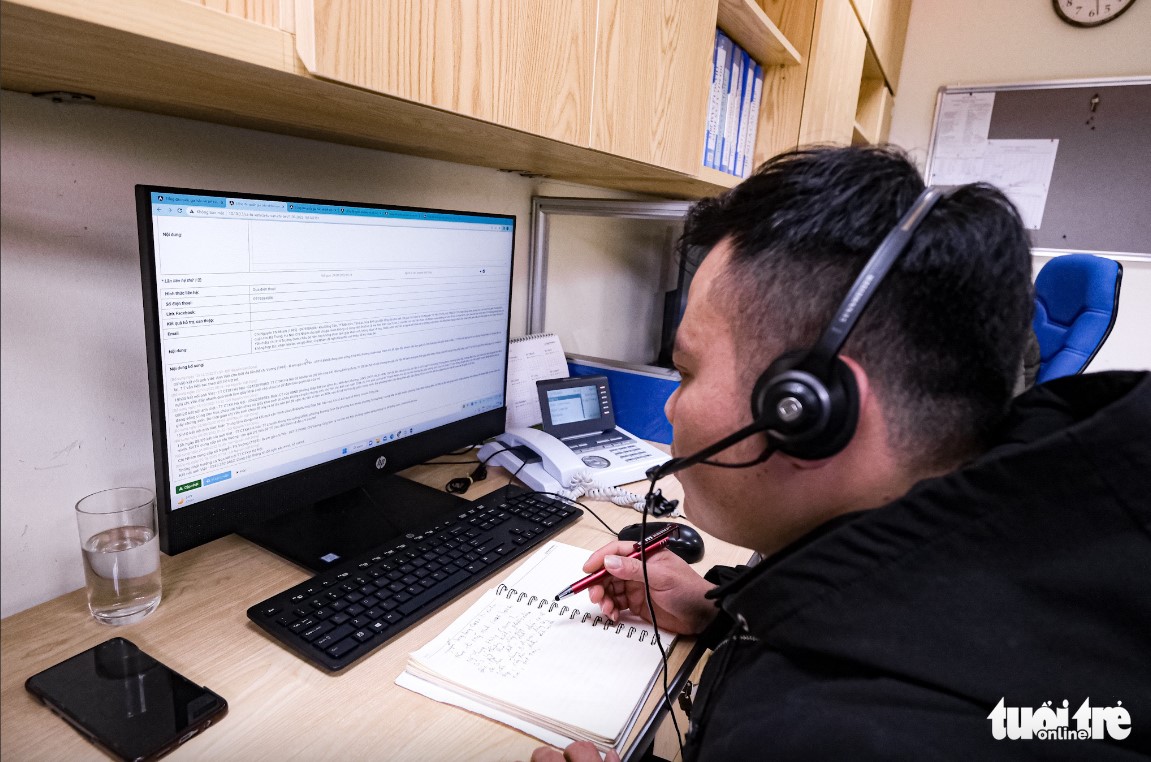Operators at the National Hotline for Children Protection spend their days handling thousands of phone calls from parents, neighbors, and relatives concerned for the welfare of children in their communities.
Calls of all types
Operators at the child protection hotline recently took a call from the aunt who was worried that her eight-year-old nephew wouldn’t be able to attend school because he had no birth certificate.
According to the aunt, the child’s mother did not take a DNA test upon her son’s birth and therefore the boy wasn’t issued a birth certificate.
“We are in the process of working with authorities to help the mother register for a birth certificate for her son,” an operator from the hotline said.
“If the mother refuses, authorities will fine her because the child must be given a birth certificate and he has every right to go to school.”
All day, every day, phones ring off the hooks in the 50-square-meter office where the hotline is housed.
Of course, while adults use the hotline to access help in relatively extreme situations, children also reach out to the hotline with their own, more unique issues:
“I want to ask the switchboard operator to help me fix my phone," "I had a fight with my boyfriend, how can I apologize," "Is it appropriate to love at my age," and "My teacher misunderstood me, how can I explain it to her,” "My parents yelled at me, what should I do now."
“When children call us and are crying, we do not rush them. We speak to them patiently and do our best to calm them down,” shared one of the hotline operators.
 |
| Files of child sexual abuse cases line the shelves at the National Hotline for Children Protection in Hanoi. Photo: Nam Tran / Tuoi Tre |
Sexual abuse
Le Thi Mai Q. is a supervisor and 12-year veteran operator at Vietnam’s National Hotline for Children Protection.
According to Q., some of the calls the hotline receives, particularly those regarding sexual abuse, have a serious effect on the mental health of the operators.
"One of my colleagues received so many reports of child sexual abuse that she became paranoid about the same happening to her three-year-old daughter," Q shared.
"She became so fearful that she even became anxious when her father-in-law held the baby.”
D., who has been working at the hotline for three years, also struggles to muster the emotional stamina to deal with the intensity of some of the cases he handles.
D. shared one particular case in which a child died from parental abuse. After reading over the details of the case, D. found himself infuriated at the situation and inspired to do his best to prevent the same from happening to other children.
Of course, many callers are equally infuriated and choose to take their frustrations out on D.
“Many families criticize and accuse authorities of not being transparent and not helping them. It makes me sad, but I do my best to deal with it,” D. said.
With such an emotionally taxing job, hotline operators do their best to take care of their own mental health.
“To relax, we sometimes plant trees together or meet with our shift facilitator, who is a psychologist," Q. shared.
Thank-you messages from children who were able to find shelter or resolve arguments with their parents are also extremely uplifting for the operators.
 |
| Every day, operators at the National Hotline for Children Protection receive hundreds of calls from children, community members, teachers, and parents. Photo: Nam Tran / Tuoi Tre |
Mental struggles
According to Nguyen Thuan Hai, head of the National Hotline for Children Protection, the Ministry of Labor, Invalids and Social Affairs has proposed classifying work at the hotline as “dangerous, sweaty, and toxic,” with many former operators having quit their jobs due to illnesses they believe were acquired from being exposed to phone signals all day in a small office space.
In addition to impacts on their physical health, many hotline operators also deal with negative effects on their mental health due to the tens of thousands of heartbreaking stores they receive each year.
Staff turnover at the hotline is so high that there are times when only four or five staff members are available to cover eight-hour shifts.
"The hotline receives about 500,000 calls per year. In the first 11 months of 2022, each of our operators answered more than 10 calls per hour, equivalent to about 80 calls per shift," Hai said.
Like us on Facebook or follow us on Twitter to get the latest news about Vietnam!


















































